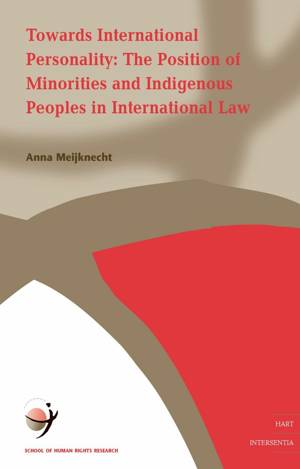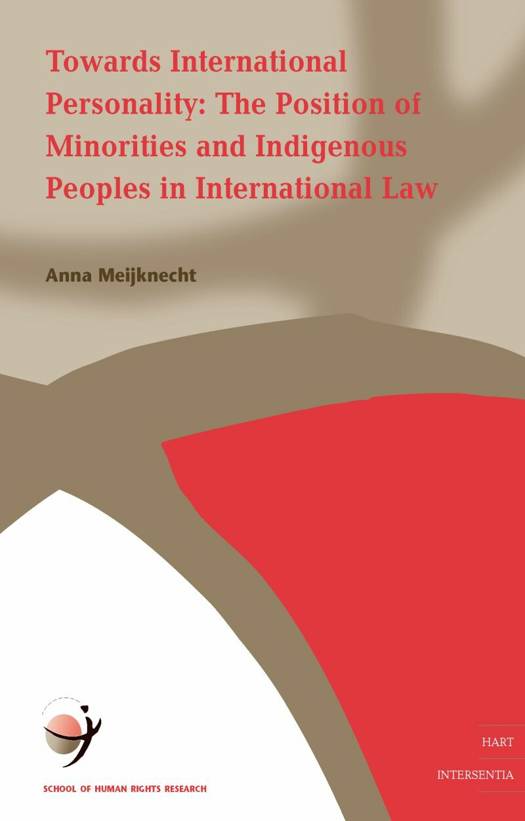
- Afhalen na 1 uur in een winkel met voorraad
- Gratis thuislevering in België vanaf € 30
- Ruim aanbod met 7 miljoen producten
- Afhalen na 1 uur in een winkel met voorraad
- Gratis thuislevering in België vanaf € 30
- Ruim aanbod met 7 miljoen producten
Zoeken
Towards International Personality
The Position of Minorities and Indigenous People in International Lawvolume 10
Anna Meijknecht
€ 51,00
+ 102 punten
Omschrijving
In the 20th century, several important developments took place in the field of the regional and international protection of minorities and indigenous peoples. This book discusses the consequences of these developments for the position of minorities and indigenous peoples in international law. Based on the concept of "international personality" as formulated by the International Court of Justice in the Reparation for Injuries case, a scale is developed which enables us to determine the position of minorities and indigenous peoples in international law. As far as minorities are concerned, it turns out that the obstacles on their road to international personality are of a political rather than of a sociological or juridical nature. In other words, minorities could be bearers of rights and duties if only the international legal order would allow them to.
Compared with minorities, a position for indigenous peoples in international law is much more accepted by the international legal order. As the recent establishment of the UN Permanent Forum on Indigenous Issues shows, indigenous peoples are increasingly recognised as actors in the international realm. The divergence between the positions of minorities and indigenous peoples is evident and can, to a certain extent, be explained. But can it also be justified?
Compared with minorities, a position for indigenous peoples in international law is much more accepted by the international legal order. As the recent establishment of the UN Permanent Forum on Indigenous Issues shows, indigenous peoples are increasingly recognised as actors in the international realm. The divergence between the positions of minorities and indigenous peoples is evident and can, to a certain extent, be explained. But can it also be justified?
Specificaties
Betrokkenen
- Auteur(s):
- Uitgeverij:
Inhoud
- Aantal bladzijden:
- 285
- Taal:
- Engels
- Reeks:
- Reeksnummer:
- nr. 10
Eigenschappen
- Productcode (EAN):
- 9789050951661
- Verschijningsdatum:
- 21/05/2001
- Uitvoering:
- Paperback
- Formaat:
- Trade paperback (VS)
- Afmetingen:
- 178 mm x 241 mm
- Gewicht:
- 503 g

Alleen bij Standaard Boekhandel
+ 102 punten op je klantenkaart van Standaard Boekhandel
Beoordelingen
We publiceren alleen reviews die voldoen aan de voorwaarden voor reviews. Bekijk onze voorwaarden voor reviews.












